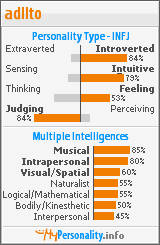A 19th Century Klezmer band in action or at least that was the caption to the photo. There is enough in the picture to suggest an ethnic band of travelers who play music together and its believable but not ne cessarily provable. This is specifically Jewish music the music of Klezmer כּלי־זמיר(yes I can read a little Hebrew alphabet though this is Yiddish which is a fusion of medieval German and Hebrew)
cessarily provable. This is specifically Jewish music the music of Klezmer כּלי־זמיר(yes I can read a little Hebrew alphabet though this is Yiddish which is a fusion of medieval German and Hebrew)
Following the destruction of Jerusalem and the Temple in AD 70, musical instruments were discourage in synagogues. But other aspects of life needed music such as weddings, and the klezmorim filled that gap. They filled a similar position as the Romas/gypsies and acquired some of their techniques. Klezmorim were accomplished musicians and they had a diverse repertoire in fact Christian churches would sometimes use them and even Italian classical violin virtuosos learned from them. In particular Ukrainian restrictions right into the 19th century forced them to play the violin and other string instruments though nowadays we hear the clarinet a lot.
Klezmer is distinctive because of its melodies sounding like the human voice, imitating both laughter and crying. The style imitates the singing of the synagogue from which they had been excluded. We can find the language of the Psalms in the style and tones. In fact Klezmer means instrument or vessel of song referring to both music genre and musician. Klezmer attracts me for its vox humana for it speaks in human tones, without words, of the highs and lows of life. I have enjoyed Ashkenzi festivals and the different fusion styles but its voice remains.
As I reflect over Klezmer, I think spirituality, which is a human voice; any spirituality that cannot accommodate both celebration and commiseration, both tears of joy and sadness, in the togetherness of community is lacking.
Friday, October 5, 2007
Kelzmer and the human voice
at
11:31 AM
![]()
Labels: community, music, spirituality, what's the question?









